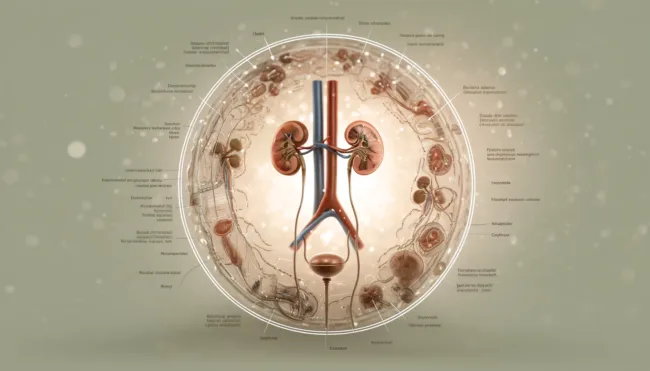Exploring the human excretory system : A crucial player in homeostasis and waste management
The human excretory system, a pivotal yet often overlooked component of our biological framework, plays a critical role in maintaining homeostasis and removing waste products from the body. This system, essential for the overall health and functioning of an organism, ensures that excess and unwanted materials are efficiently expelled, thus preventing potential damage to the body.
Key Components and Functions of the Excretory System
Anatomy of the Excretory System
The excretory system comprises several major organs, each playing a specific role in waste management:
– Kidneys: These bean-shaped organs filter blood, removing toxins and excess water to form urine.
– Ureters: Tubes that carry urine from the kidneys to the bladder.
– Bladder: A hollow organ that stores urine until it is ready to be expelled from the body.
– Urethra: The canal through which urine exits the body.
In addition to these organs, the skin also acts as an excretory organ by eliminating excess salts and urea through sweat. This process not only helps in waste removal but also regulates body temperature, showcasing the skin’s dual functionality.
Operational Dynamics
The primary function of the excretory system is the elimination of liquid waste in the form of urine. This process involves several steps, starting with filtration in the kidneys, where blood is cleansed of harmful substances. The cleaned blood is then recirculated, while the waste materials are converted into urine and passed through the ureters to the bladder. From there, urine is eventually expelled from the body via the urethra.
Moreover, the system plays a critical role in removing metabolic by-products and gaseous wastes, ensuring that every cell and tissue in the body can operate in a safe and stable environment. The removal of these toxins is vital for preventing damage to the body’s tissues and organs, thereby supporting the organism’s overall health and vitality.
Importance of Homeostasis
By managing the removal of waste products, the excretory system contributes significantly to the maintenance of homeostasis within the body. Homeostasis refers to the stable state of internal conditions maintained by living organisms. By regulating the concentration of various substances and the volume of water in our body, the excretory system ensures that internal conditions remain optimal for cell function.
The Broader Impact
Understanding the function and importance of the excretory system is crucial for recognizing signs of potential health issues, such as kidney stones or infections, which can significantly affect the system’s ability to perform its duties. Regular check-ups and staying hydrated are simple yet effective ways to support the healthy functioning of this essential system.
Discover more from Business-News-Today.com
Subscribe to get the latest posts sent to your email.
